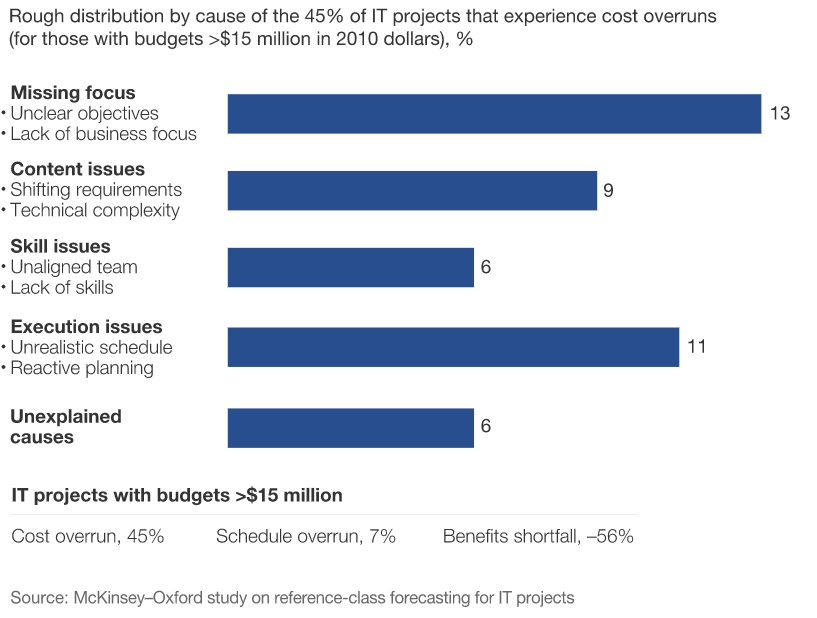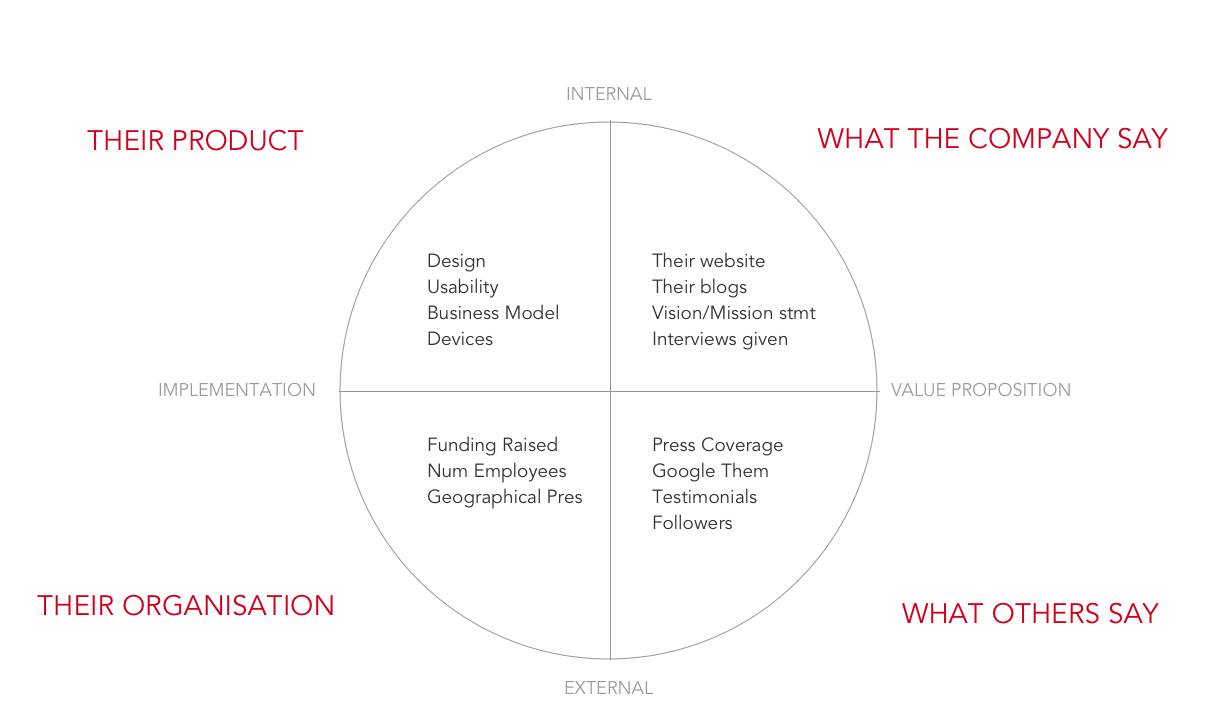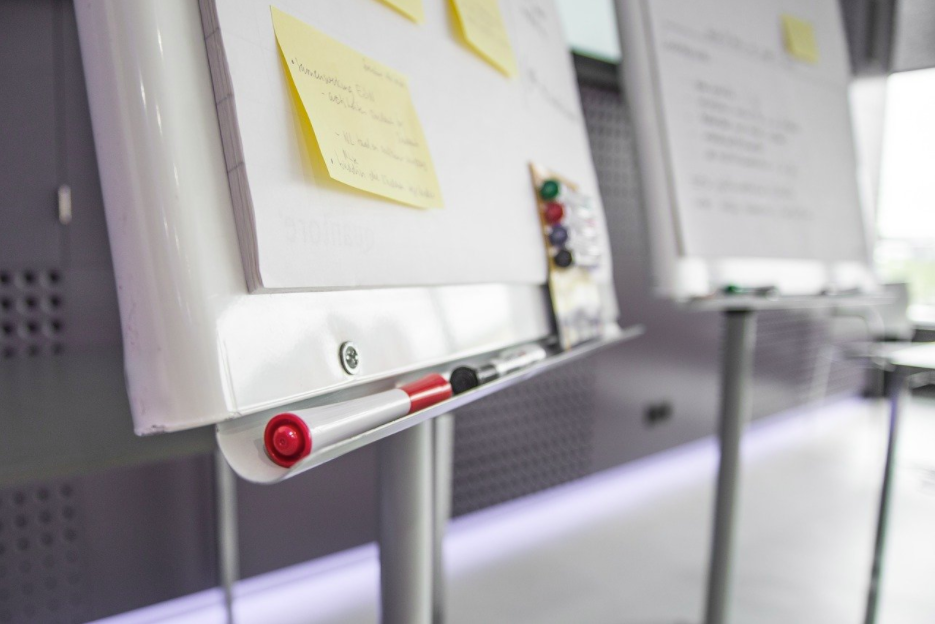How to Run a Product Development Workshop
Throughout the preceding articles in this series, we’ve explored the discovery phase of project management, the benefits of conducting discovery workshops for startups, the product development process, and some considerations regarding whether to run a product workshop.
Today, we’re delving deeper into how to conduct a product development workshop and what to anticipate at different stages of the process.
Understanding the Online Workshop – Part 4
This article is the fourth installment of a five-part series about online discovery, product, and design workshops driven by value. Click the links below to navigate back or skip ahead to the next article.
What is a product discovery workshop?
In the preceding articles of this series, we discussed the discovery phase of project management, the benefits of conducting discovery workshops for startups, and the product development process. We’ve also explored various reasons why you may (or may not) want to run a product workshop. Today, we’re delving deeper into the process of running a product development workshop and examining what to expect at different stages of this endeavor.
Why you should run a product workshop
A collaborative study conducted by Oxford and McKinsey & Company involved numerous surveys of IT executives. The findings revealed that approximately half of all cost overruns stem from a lack of clear definitions regarding project objectives, business focus, requirements, or technical complexity. An additional 40 percent of overspending is attributed to issues such as poor performance in design team alignment, skill availability, unrealistic scheduling, or reactive planning.

Source: McKinsey.com
These pitfalls can be mitigated through a rigorous and comprehensive product development process, encompassing discovery and product workshops. This approach ensures a thorough understanding and definition of a project from every angle, including aspects that may not have been initially considered.
How to run a product development workshop
Not all product workshops are created equal. At DO OK, we leverage a set of custom activities, methodologies, and toolsets developed over thousands of hours with hundreds of clients. While various approaches exist for conducting a product development workshop, let’s outline the process we use to help clients realize their vision for a product.
Preparing for the workshop
1. Decide on an overall goal
Firstly, establish a clear overarching goal or mission statement for the workshop. Given that the workshop will span several hours over multiple days, having a central theme is crucial to guide discussions throughout the entire process. Here are a few examples:
Define the technical requirements of the product and create a development plan.
Understand business needs, user journeys, pain points, and other shared values.
Align stakeholder & customer values with product features & design processes.
2. Define workshop deliverables
Once the goal is set, your workshop organizer should provide you with an agreed-upon list of artifacts or deliverables that the sessions will generate. Here are the most common items that we deliver from workshops with our clients:
Value-driven Pyramid, outlining stakeholder & customer values
A set of Lean Canvas business models for each customer segment
High-level minimum viable product (MVP) scope
Main user personas & user journeys Value-driven Backlog (list of features mapped to values from the Value-driven Pyramid)
Lists of key hypotheses, assumptions and risks
Recommended software architecture
Project plan, team competencies and composition
Estimates (effort, calendar time, cost) for developing the MVP
3. Choose and invite participants
Since these sessions are driven by full participation from all members, we recommend 4-8 participants, including parties from your own office and those of your consultant. The roster should look something like this:
Workshop lead (business analyst)
Project manager / Product development lead
User experience designer or developer
Business development officer
Experienced developer / tech leader
Product owner (either a person or a team)
Other relevant roles (optional)
4. Set a clear agenda, time frame, and objectives
Investing additional time in product development workshops to define your product vision, goals, requirements, and key performance indicators (KPIs) can save a lot of time on the backend. A more thorough understanding of how the product delivers value to customers becomes necessary when expanding your service or adding new features.
A rough schedule might be arranged as follows:
- Brainstorming: 3-4 working days before the workshop begins, organizer and participants communicate to solidify goals and agenda, prepare documents like a competition canvas, or conduct market research.
- Schedule option #1:
4 consecutive workshop days
- 4-5 working hours per day, 1-hour break to maximize efficiency
- Schedule option #2:
3-4 workshop days, 5-6 hours including breaks each day
1-2 day breaks between workshops

Source: OpenClassrooms.com
Value-driven Pyramid, outlining stakeholder & customer values
A set of Lean Canvas business models for each customer segment
High-level, minimum viable product (MVP), scope
Main user personas & user journeys Value-driven Backlog (list of features mapped to values from the Value-driven Pyramid)
Lists of key hypotheses, assumptions and risks
Recommended software architecture
Project plan, team competencies and composition
Estimates (effort, calendar time, cost) for developing the MVP
5. Choose and invite participants
Book a conference room or another space with enough room for all the attendees and planned activities. Ensure there are large whiteboards or other surfaces suitable for writing notes, sticking, or pinning post-it notes.
Additionally, you may need some of the following materials or other items for specific exercises:
Pens, pencils, sticky notes, loose sheets of paper, notepads
Computer for the “scribe” or note-taker
Projector/Display for displaying pictures, video, or other media
Online workshops during the COVID-19 pandemic
As companies and employees shift to remote work due to the COVID-19 coronavirus pandemic, online meetings and workshops are rapidly becoming the new normal. At DO OK, we offer our clients the option of complete online digital consulting services for the safety and comfort of your team. When organizing online workshops, be prepared with the following:
Sessions booked on Zoom, Google Meet/Hangout, Skype, etc.
Pre-shared files on Google Drive, Dropbox, etc.
Online productivity tools such as Canva, Trello, Pomodoro, etc.
Online collaboration tools like Miro or Google Jamboard (now possible to launch from Google Meet directly!)
Contact our value-focused business analyst now!
Running the workshop
With your goals defined, activities planned, and agenda set, it’s time to run the product development workshop! Remember, the more time you spend planning and preparing for the workshop, the easier and more productive this part will be. Here are some helpful ideas, questions to ask, and best practices to keep the workshop running smoothly.
Questions to ask during the product workshop
What is the goal of the product?
Structure questions around the reason for your product and even your company to exist. What benefits does the product provide for the company? What do you want to improve? Define metrics and KPIs and ask how to measure success over different time periods.
Who uses the product?
Think about who uses your product, when, where, and how they interact with it. Ask yourself why they use it, and what their motivations, expectations, and challenges are. What are the reasons to choose your product over a competitor?
What do users do with the product?
Start mapping user personas to user stories, such as the login flow, making purchases, running a search, etc., to define the experiences that a user has with your product. Build the customer journey map by connecting user interactions with product features.
How can user experience be improved?
Which actionable improvements can be associated with user experiences? What are some of the negative experiences users currently face with the application, and what opportunities exist for improvement?
Best practices, strategies, tips & tricks for running a great workshop
-
Include every attendee. Utilize a condensed and highly visual pyramid diagram that identifies stakeholder and customer values.
-
Use positive statements to optimize participant output. Phrases like “Let me confirm if I understand correctly…” or “That’s very interesting, but…” help ensure everyone comprehends important information and keeps attention focused on critical tasks.
-
Stay on task. Every workshop presents numerous opportunities to delve into various topical rabbit holes. Ensure activities achieve their stated objectives, and discussions don’t stray too far off-topic.
-
Don’t do everything yourself. Product development workshops take a lot of time and effort to organize and run. Designate someone in the room, such as the “scribe” (note-taker), to assist you with small tasks and help keep things running smoothly.
-
Take breaks. Workshops typically span several days with 2-4 hour sessions, so it’s essential that everyone is rested and free of distractions. Provide adequate breaks, and ensure attendees have time to attend to everyday tasks outside the sessions.
-
Collate results. Make sure nothing is missed. Check artifacts after each session and ensure that every attendee contributed to the workshop output, wherever their input was relevant.

After product design workshops
At this stage, the workshop is complete, the room is quiet, and everyone has gone for the day. Your task now, as the workshop lead (in conjunction with the scribe or whoever helped organize), is to mold all the data generated by the workshop into usable forms. There are a few tasks that should be completed as soon as possible to maximize efficiency and the results gleaned from the workshop.
- Collect & digitize materials, finalize the design plan, and distribute draft documents.
- Meet again as a group to discuss findings, identify knowledge gaps, gauge reactions.
- Set up tools for collaboration & design, issue invites to team members.
- Define roles and next steps for workshop participants & the development team.
- Conduct customer research (if no customers involved up to this point)
Add value by knowing how to run a product development workshop
By learning how to conduct a product development workshop and leveraging the process to its fullest potential, you can steer clear of many known (and unknown) pitfalls in project management. Gaining a deeper understanding of your product, your company, and yourself brings forth a wide array of benefits, both objective and subjective, some of which may not become apparent without rigorous workshopping. This is precisely why we’ve introduced our innovative, value-focused product discovery workshop to our suite of services related to software development.


